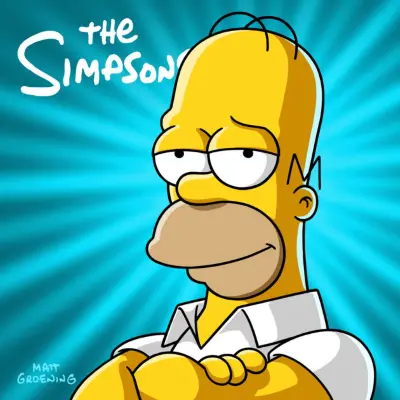A journalist of South Asian descent says "most of us happily embraced Apu" in the 1990s, but The Simpsons can fix its most controversial character
-

"For those of us with low expectations, starving for any representation, Apu was a breath of fresh air," says Wajahat Ali, the son of Pakistani Muslim immigrants who grew up near Silicon Valley. While other portrayals showed brown people as cab drivers or terrorists, Apu Nahasapeemapetilon "was an integral character in the Simpsons universe who was able to be a co-protagonist of several episodes," he says. "Only in a cartoon, we thought, could people who look like us achieve such a feat." But that doesn't mean Apu or The Simpsons "get a lifetime pass to perpetuate lazy stereotypes," he says. "Any piece of art, no matter how well intentioned, harmless or silly, is not above reproach or critical examination... Instead of engaging with the issue of representation, which would have made for a more satirical and topical show — you know, the type The Simpsons used to do years ago — the writers responded with the worst creative sin: laziness." What The Simpsons shouldn't have done, he says, is "hijack your show’s most intellectual and empathetic voice, Lisa, as a foil for the writers’ unwillingness to be self-critical and engage their blind spots when it comes to listening to people of color who feel silenced and misunderstood. Thus, the show engages in another major sin: omission. After Lisa’s finger-wagging, the camera pans to a photo of Apu with the inscription 'Don’t have a cow!' Apu, who is a supporting character, is robbed of lines, rendered mute and frozen in a suffocating frame, smiling as a token prop. That’s exactly how so many people of color feel in real life — all the time." Ali adds: "What The Simpsons should have done was a stand-alone episode centered on Apu, who, after becoming a citizen many years ago, is confronted with an immigrant travel ban...Nobody would have a cow. But we would have an intelligent, critical, satirical show that at least confronts problematic issues instead of running away from them."
ALSO:
- Showrunner Al Jean explained why Lisa Simpson defended Apu, but why did she look at the camera?
- Jean criticized for tweeting conservative media in The Simpsons' defense
- Jean tweeted a link to the National Review piece: "Why the Apu Simpsons Controversy Bothers Me as an Indian American"
- Harry Shearer stuck up for the show, tweeting to Hari Kondabolu: "Bart, a pre-pubescent boy, is played by an adult woman. What's up with that?"
- BoJack Horseman creator Raphael Bob-Waksberg slammed The Simpsons response: "Imagine choosing to describe yourself and your work as 'applauded and inoffensive'"
- Bill Maher defends The Simpsons' response to Apu: "If you spend your time combing through old TV shows to identify stuff that by today’s standards looks bad, you’re not ‘woke,’ you’re just a douchebag"
TOPICS: The Simpsons, BoJack Horseman, Real Time with Bill Maher, Al Jean, Bill Maher, Hank Azaria, Harry Shearer, Raphael Bob-Waksberg, Indian-Americans and TV
More The Simpsons on Primetimer:- The Simpsons Season 37: Release date & timing, cast and characters, where to watch and more
- Did The Simpsons predict Ozzy Osbourne's death? Viral video claim debunked
- Did The Simpsons predict Astronomer CEO Andy Byron and HR Chief Kristin Cabot’s Coldplay kiss cam blunder? Details explored as caricature goes viral
- Are Labubus evil? Exploring the conspiracy theory surrounding demon Pazuzu and all about the popular doll's origin story
